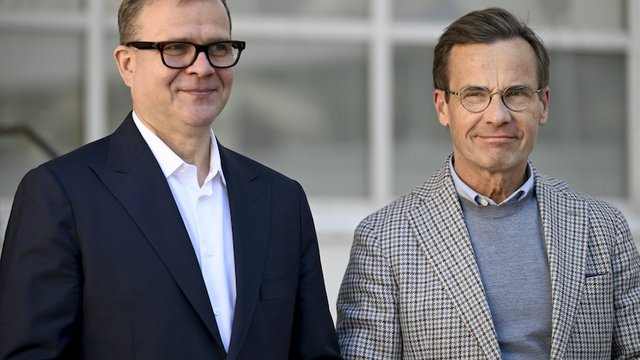Finland, Sweden urge EU to use frozen Russian funds for loan to Ukraine – media

Finnish and Swedish Prime Ministers Petteri Orpo and Ulf Kristersson have urged the European Commission and EU member states to act quickly to provide long-term financial support to Ukraine, warning that about EUR 130 billion will be needed by 2027, the Helsinki Times reports.
In a joint letter submitted ahead of informal EU meetings in Copenhagen, the Finnish and Swedish prime ministers proposed a financing solution involving the use of immobilised assets from the Russian Central Bank. The plan suggests using these frozen funds as collateral for a loan to Ukraine, with repayment delayed until Moscow pays war reparations.
"Supporting Ukraine is not only our moral obligation, it is a direct investment in European security," Orpo said in a statement issued by the Finnish government. He added that "utilising the immobilised Russian assets to a greater extent is an important solution, and a just one."
The non-paper, an unofficial document intended to prompt discussion, argues that the EU and its Member States have a central role in providing sufficient and predictable funding. According to the document, a financing gap is expected to emerge as early as the second quarter of 2026.
The European Council has previously confirmed that Russian central bank assets frozen by EU states will remain immobilised until Russia compensates Ukraine for damage caused by its invasion. The Finnish and Swedish proposal builds on this decision by linking the repayment of the loan to the eventual receipt of reparations.
Kristersson and Orpo also emphasised the importance of long-term industrial cooperation between Ukraine and the EU, particularly in defence production. They said strengthening Ukraine’s military industry would also enhance European defence capability.
A capable Ukrainian defence force, they argue, is the most effective deterrent against further Russian aggression once the current war ends.
Ukraine’s future funding needs are expected to dominate the agenda at the EU meetings in Copenhagen on 1–2 October. The letter submitted by Finland and Sweden seeks to influence those discussions by placing immobilised Russian funds at the centre of the debate.
The letter from Orpo and Kristersson argues that delaying action would carry strategic costs. They warned that without a predictable funding stream, Ukraine’s military and civil institutions risk becoming vulnerable to disruption.
The non-paper does not specify a timeline for issuing the proposed loan but indicates that work should begin immediately to prepare for disbursements starting in 2026.









